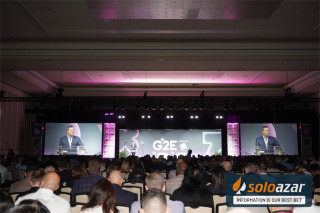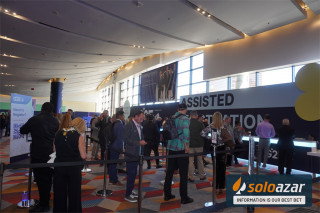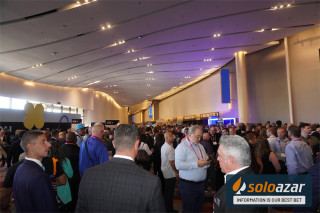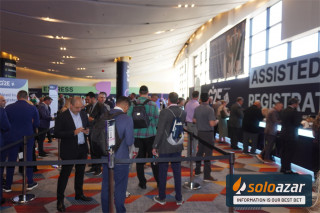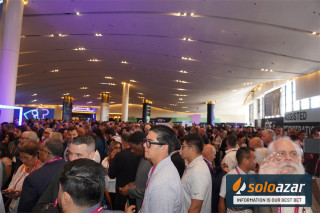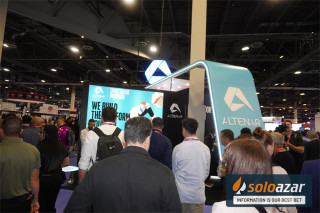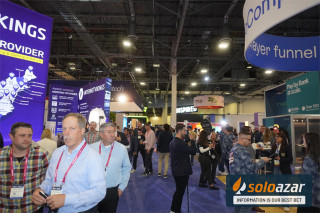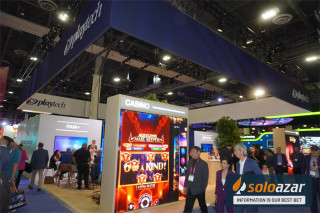New Zealand Issues 15 Fresh Online Casino Licences: What’s Next?
Friday 22 de August 2025 / 12:00
2 minutos de lectura
(New Zealand).- New Zealand is set to implement a capped licensing framework for online casinos, marking a strategic shift toward regulatory oversight in a previously unregulated sector. This initiative signals a commitment to fostering a safer, more transparent digital gaming environment, aligning with global best practices and industry standards.

In 2025, New Zealand made a major move toward online casino gaming regulation by announcing laws to grant up to 15 licences. This is a major shift in a world where online operators have traditionally licensed offshore. The new licence structure addresses the desire for increased control in a bid to aid the development of responsible online entertainment.
What is the new licensing wave for online casinos in New Zealand?
New legislation enacted by the Internal Affairs Minister allows for a formal, three-step process in granting digital casino licenses. Expressions of interest are first invited in the first stage. A competitive auction or bid process follows suit. Everything culminates with licence applications on suitability and compliance grounds.
Just 15 non-transferable licence opportunities will result, each attached to a specific brand or platform. The system aims to build a controlled, highly regulated marketplace to protect consumers and provide for innovation in the industry.
This approach brings a sense of anticipation and optimism for online gaming enthusiasts across the globe. The inclusion of no deposit bonuses in NZ within the regulated landscape can help level the playing field. It gives entrants accessible ways to explore new games under safe conditions.
For newcomers, this could be the difference between feeling hesitant and feeling encouraged to try regulated platforms.
In a gradual, three-part process, the government is showing a wish for equity. It’s not a rash move. It’s a slow one allowing for feedback, refinement and avoidance of pitfalls other states have suffered in implementing similar structures.
Implications for the market
The restriction of the number of licences, only 15, limits the environment to selective and high-standard. Operators will be closely vetted. They will have to be in substantial compliance and in the minimisation of harm.
By licensing only respectable platforms and capping the number each operator may have, the licence holders seek to ensure diversity and not monopolistic single control.
This considerate design marks a positive development for players and suppliers alike. It creates opportunities for innovation. It promotes fair competition and ensures the digital platform is enjoyable and responsible.
To the licensed operators, the prestige will be significant. They will be regarded as responsible suppliers in one of the world’s most highly regulated markets.
This may even have a positive indirect effect on sports betting websites. As casinos are held to a higher standard, the general image of the online gaming sector in Aotearoa New Zealand might become more positive. That could draw in players who had held back in the past.
Regulatory standards and compliance measures
The new system is grounded in the protection of player welfare. Licensed sites will have strict demands, including compulsory age checks and tools for the identification and banning of problem gamblers. Advertising practices will also have limitations.
Notably, unlicensed sites will not be able to provide services to Kiwis. This will have the effect of limiting exposure to offshore sites with low levels of protection.
These protections show a strong commitment to balancing the thrill of digital gaming with responsible oversight. The regulated model positions New Zealand as a forward-looking hub. It prioritises both enjoyment and player safety.
This is not only about protecting the vulnerable, it’s also about building trust across the whole community of players. By tightening the advertising rules, the government hopes to avoid aggressive marketing tactics that can overwhelm potential players. Instead, the focus will be on quality, fairness and transparency.
Impact on players and gaming options
For the players in New Zealand, the initiative has the potential for a safer and more respectable casino experience. Licensed casinos are sure to have explicit terms. They will stick to fairer gaming principles and more transparent support structures.
Everything fosters greater trust in the online environment. Advertisement restraints in the paradigm aim to inhibit excessive promotion and clear platforms provide safe choices.
The regulated structure also enables platforms to introduce diverse offerings. These might include themed games, promotional events and tailored experiences. All of it takes place within a secure and fair environment.
Players could even see cross-platform integrations, where sports betting and casino games share loyalty features. This would create a more seamless and engaging experience overall.
The end product is a dynamic and new games marketplace where players can have diversity without losing safety.
Future prospects in New Zealand
Ahead of 2026 and into the future, the use of this licensing system provides an intriguing opportunity for the sector. With only 15 places and a comprehensive application process, the operators will have the incentive to develop sound proposals.
These must prioritise consumer protections and sound practice. The select-committee submission stage provides the element of public engagement. It helps ensure the system aligns with the values of the community.
Notably, unlicensed sites will not be able to provide services to Kiwis. This will have the effect of limiting exposure to offshore sites with low levels of protection.
These protections show a strong commitment to balancing the thrill of digital gaming with responsible oversight. The regulated model positions New Zealand as a forward-looking hub. It prioritises both enjoyment and player safety.
This is not only about protecting the vulnerable, it’s also about building trust across the whole community of players. By tightening the advertising rules, the government hopes to avoid aggressive marketing tactics that can overwhelm potential players. Instead, the focus will be on quality, fairness and transparency.
Impact on players and gaming options
For the players in New Zealand, the initiative has the potential for a safer and more respectable casino experience. Licensed casinos are sure to have explicit terms. They will stick to fairer gaming principles and more transparent support structures.
Everything fosters greater trust in the online environment. Advertisement restraints in the paradigm aim to inhibit excessive promotion and clear platforms provide safe choices.
The regulated structure also enables platforms to introduce diverse offerings. These might include themed games, promotional events and tailored experiences. All of it takes place within a secure and fair environment.
Players could even see cross-platform integrations, where sports betting and casino games share loyalty features. This would create a more seamless and engaging experience overall.
The end product is a dynamic and new games marketplace where players can have diversity without losing safety.
Future prospects in New Zealand
Ahead of 2026 and into the future, the use of this licensing system provides an intriguing opportunity for the sector. With only 15 places and a comprehensive application process, the operators will have the incentive to develop sound proposals.
These must prioritise consumer protections and sound practice. The select-committee submission stage provides the element of public engagement. It helps ensure the system aligns with the values of the community.
Categoría:Online Games
Tags: Sin tags
País: New Zealand
Región: Oceania
Event
G2E - Las Vegas 2025
06 de October 2025
CT Interactive on Innovation, Networking, and Market Growth at G2E 2025
(Las Vegas, SoloAzar Exclusive).- The global gaming industry marked G2E’s 25th anniversary with a major gathering in Las Vegas. CT Interactive stood out for its innovative product development and international growth strategy. Account Manager LATAM at CT Interactive, Roberto Muñoz, shared insights on G2E’s importance, emerging trends, and the company’s collaborative expansion efforts.
Thursday 30 Oct 2025 / 12:00
Atlaslive Explored the Future of Gaming in Latin America at Recent G2E 2025
(Las Vegas, SoloAzar Exclusive).- Bruno Almeida, Head of Sales LATAM at Atlaslive, attended G2E for the first time to explore how land-based and online gaming are converging. His experience highlighted key trends shaping the Latin American market, from immersive casino innovations to strategic networking and regulatory insights.
Monday 27 Oct 2025 / 12:00
G2E 2025: Cristian Galarza, ASAP Director Explains the Importance of Attending the Event
(Las Vegas, SoloAzar Exclusive). - After attending the 25th anniversary edition of G2E in Las Vegas, ASAP’s director shares his perspective on the evolution of the industry, driven by digitalization, efficiency, and the creation of international networks that foster new business opportunities.
Tuesday 28 Oct 2025 / 12:00
SUSCRIBIRSE
Para suscribirse a nuestro newsletter, complete sus datos
Reciba todo el contenido más reciente en su correo electrónico varias veces al mes.



















